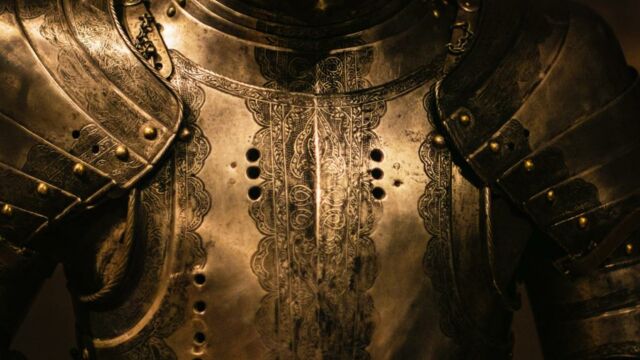The world of archaeology is many things, polarized is one of them. Indeed, when it comes to discoveries, it's possible, for example, for researchers to spend years trying to unearth lost treasures, without the bowels of the Earth agreeing to release them; and other times, they seem to reveal themselves as if by magic, as if by chance. And it's the latter that seems to characterize this recent discovery, a cemetery, made in Finland.
Discover our latest podcast
The past meets the present
It was in the municipality of Salo Perttel, Finland, that the amazing find was made, by the happiest of coincidences. While supervising work on his property, a landowner's attention was drawn to a silver object. But he soon realized he was dealing with much more than just an object, and alerted archaeologists at the University of Turku.
Experts have analyzed the find: it's a fully preserved sword. They estimated that it dated back to the Crusades, between 1050 and 1150 AD. After a meticulous excavation of the site, the archaeologists also discovered other precious traces of the past: the sword's scabbard, blade fragments, human remains and 8 graves making up an ancient cemetery.
One of the most striking finds is a leather belt with bronze ornaments in the shape of a rosette. Animal head buckles in excellent condition were also recovered. According to the researchers, all these objects date from the same period: the Crusades.
Read more:Archeologists discover a strange 1,000-year-old children's cemetery in Peru
The Age of the Crusades in Finland
In Finland, this era, between the 11th and 13th centuries, corresponds to the crusades led by the Swedes, who brought Christianity with them. Until now, there had been no archaeological evidence of this era, only written records. More detailed studies, including radiocarbon dating, are now required to better situate the cemetery and its artefacts in time.
Further research is also due to take place on site. So far, the archaeologists have uncovered 8 tombs, but they believe there could be many more. The location of the site, in the immediate vicinity of a medieval stone church, can be considered as 'evidence of a very early ecclesiastical organization in the region', says a press release from the University of Turku. To be continued...
Crusade period grave field discovered in Southwest Finland https://t.co/gi9MbGnzPk
— Yle News (@ylenews) October 12, 2023
Read more:Archeologists discover a 1,000-year-old mummy, but one incredible detail catches their attention
This article has been translated from Gentside FR.
Source used:
Yle: Crusade period grave field discovered in Southwest Finland















